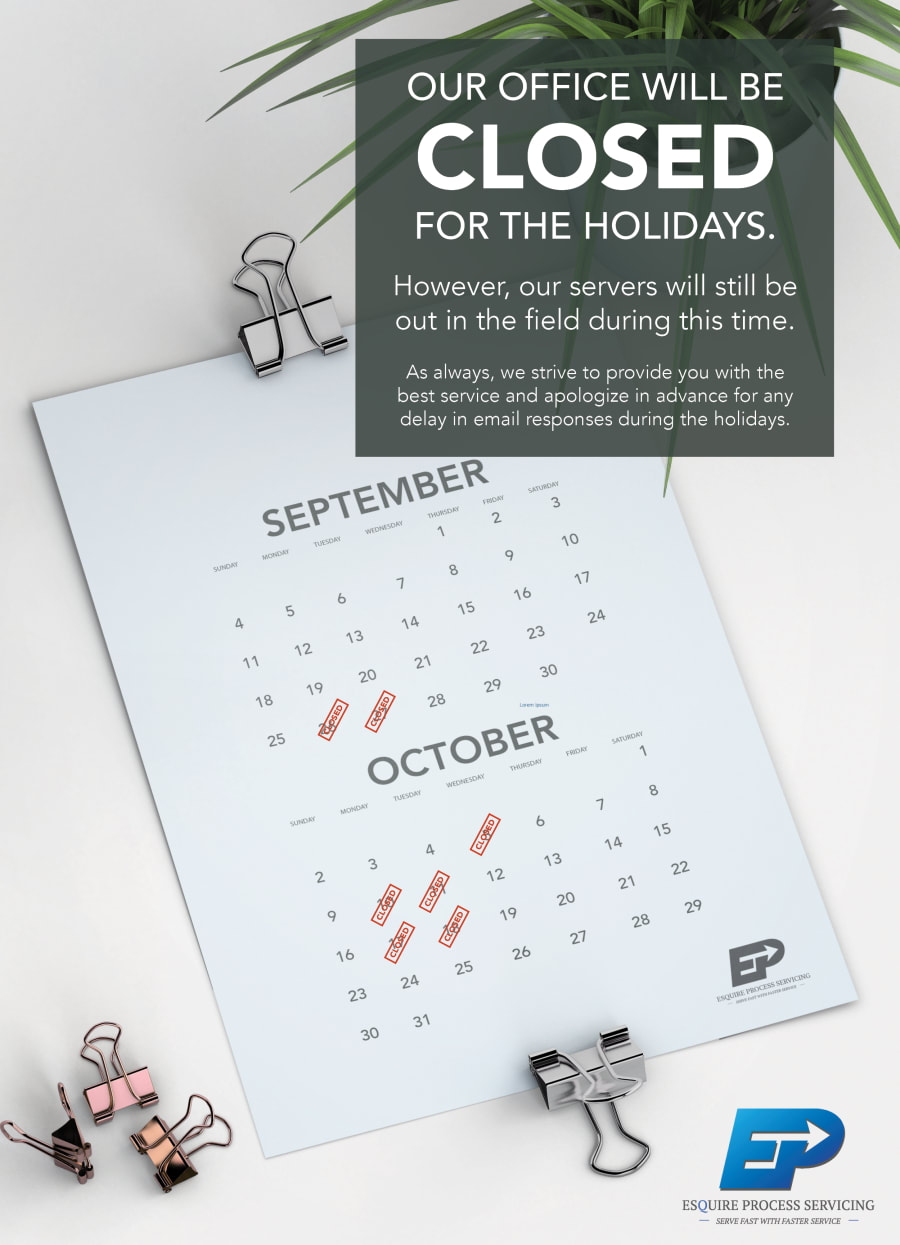As we approach the 4th of July, Esquire Process Servicing extends our warmest wishes to everyone this joyous occasion. Independence Day is a time to come together and reflect on the core values that make our nation great: FREEDOM, LIBERTY, and the PURSUIT OF JUSTICE.
At Esquire Process Servicing, we are proud to uphold these principles every day by providing exceptional legal support services. Our dedicated team of professionals ensures accuracy, efficiency, and integrity in serving legal documents, helping our clients navigate the complexities of the legal system and ensuring due process is upheld.
We also want to express our heartfelt gratitude to our amazing clients and partners for your continued trust and support. Your confidence in Esquire Process Servicing inspires us to continually strive for excellence and deliver the highest level of service.
As we celebrate the red, white, and blue, let us remember the sacrifices made by our forefathers who fought bravely to secure the freedoms we enjoy today. Their vision and determination laid the foundation for the prosperous nation we proudly call home.
Esquire Process Servicing is honored to be part of the American spirit of resilience, innovation, and progress. We remain committed to upholding the values that make our country great as we continue to serve the legal community with pride.
May your Independence Day be filled with joy, laughter, and cherished moments shared with loved ones. From all of us at Esquire Process Servicing, we wish you a safe and memorable celebration.
Happy 4th of July! 🎆
#IndependenceDay #ProudToServe #ESQPS #EsquireProcessServicing #LegalSupport #Happy4thofJuly
At Esquire Process Servicing, we are proud to uphold these principles every day by providing exceptional legal support services. Our dedicated team of professionals ensures accuracy, efficiency, and integrity in serving legal documents, helping our clients navigate the complexities of the legal system and ensuring due process is upheld.
We also want to express our heartfelt gratitude to our amazing clients and partners for your continued trust and support. Your confidence in Esquire Process Servicing inspires us to continually strive for excellence and deliver the highest level of service.
As we celebrate the red, white, and blue, let us remember the sacrifices made by our forefathers who fought bravely to secure the freedoms we enjoy today. Their vision and determination laid the foundation for the prosperous nation we proudly call home.
Esquire Process Servicing is honored to be part of the American spirit of resilience, innovation, and progress. We remain committed to upholding the values that make our country great as we continue to serve the legal community with pride.
May your Independence Day be filled with joy, laughter, and cherished moments shared with loved ones. From all of us at Esquire Process Servicing, we wish you a safe and memorable celebration.
Happy 4th of July! 🎆
#IndependenceDay #ProudToServe #ESQPS #EsquireProcessServicing #LegalSupport #Happy4thofJuly










 RSS Feed
RSS Feed